- Home
- Madeleine L'engle
A Wrinkle in Time Quintet
A Wrinkle in Time Quintet Read online
Contents
A Wrinkle in Time
An Appreciation by Anna Quindlen
1 Mrs Whatsit
2 Mrs Who
3 Mrs Which
4 The Black Thing
5 The Tesseract
6 The Happy Medium
7 The Man with Red Eyes
8 The Transparent Column
9 IT
10 Absolute Zero
11 Aunt Beast
12 The Foolish and the Weak
A Wind in the Door
OTHER NOVELS IN THE TIME QUINTET
Epigraph
1 Charles Wallace’s Dragons
2 A Rip in the Galaxy
3 The Man in the Night
4 Proginoskes
5 The First Test
6 The Real Mr. Jenkins
7 Metron Ariston
8 Journey into the Interior
9 Farandolae and Mitochondria
10 Yadah
11 Sporos
12 A Wind in the Door
A Swiftly Tilting Planet
1 In this fateful hour
2 All Heaven with its power
3 The sun with its brightness
4 The snow with its whiteness
5 The fire with all the strength it hath
6 The lightning with its rapid wrath
7 The winds with their swiftness
8 The sea with its deepness
9 The rocks with their steepness
10 The earth with its starkness
11 All these I place
12 Between myself and the powers of darkness
Many Waters
1. Virtual particles and virtual unicorns
2. Pelican in the wilderness
3. Japheth’s sister Yalith
4. Grandfather Lamech and Grandfather Enoch
5. The nephilim
6. Adnarel and the quantum leap
7. The seraphim
8. Oholibamah, Japheth’s wife
9. Mahlah’s time, Lamech’s time
10. The song of the stars
11. Many waters cannot quench love
12. Neither can the floods drown it
An Acceptable Time
Chapter One
Chapter Two
Chapter Three
Chapter Four
Chapter Five
Chapter Six
Chapter Seven
Chapter Eight
Chapter Nine
Chapter Ten
Chapter Eleven
Chapter Twelve
Newbery Medal Acceptance Speech: The Expanding Universe
A Wrinkle
in Time
MADELEINE
L’ENGLE
A Wrinkle
in Time
OTHER NOVELS IN THE TIME QUINTET
An Acceptable Time
Many Waters
A Swiftly Tilting Planet
A Wind in the Door
Square Fish
An Imprint of Holtzbrinck Publishers
A WRINKLE IN TIME.
Copyright © 1962 by Crosswicks, Ltd.
An Appreciation Copyright © 2007 by Anna Quindlen.
All rights reserved. Printed in the United States of America. No part
of this book may be used or reproduced in any manner whatsoever
without written permission except in the case of brief quotations
embodied in critical articles or reviews. For information,
address Square Fish, 175 Fifth Avenue, New York, NY 10010.
Library of Congress Cataloging-in-Publication Data
L’Engle, Madeleine.
A wrinkle in time.
p. cm.
Summary: Meg Murry and her friends become involved with unearthly
strangers and a search for Meg’s father, who has disappeared while engaged
in secret work for the government.
ISBN-13: 978-0-312-36755-8
ISBN-10: 0-312-36755-4
[1. Science fiction.] I. Title.
PZ7.L5385 Wr 1962
62-7203
Originally published by Farrar, Straus and Giroux
Book design by Jennifer Browne
First Square Fish Mass Market Edition: May 2007
10 9 8 7 6 5 4 3 2 1
For Charles Wadsworth Camp
and
Wallace Collin Franklin
An Appreciation
BY ANNA QUINDLEN
The most memorable books from our childhoods are those that make us feel less alone, convince us that our own foibles and quirks are both as individual as a finger-print and as universal as an open hand. That’s why I still have the copy of A Wrinkle in Time that was given to me when I was twelve years old. It long ago lost its dust jacket, the fabric binding is loose and water-stained, and the soft and loopy signature on its inside cover bears little resemblance to the way I sign my name today. The girl who first owned it has grown up and changed, but the book she loved, though battered, is still magical.
Its heroine is someone who feels very much alone indeed. Meg Murry has braces, glasses, and flyaway hair. She can’t seem to get anything right in school, where everyone thinks she is strange and stupid. And she runs up against some real nastiness at a young age in the form of all those snide looks and comments about her father, a scientist who seems to have mysteriously vanished—or, town gossip has it, run off with another woman.
But Meg doesn’t know real evil until she sets out on a journey to find her father and bring him home, along with her little brother, Charles Wallace, and a boy named Calvin. As they transcend time, space, and the limitations of their own minds, they get help from individuals of great goodness: Mrs Whatsit, Mrs Which, Mrs Who, the Happy Medium, and Aunt Beast. But the climax of their journey is a showdown with IT, the cold and calculating disembodied intelligence that has cast a black shadow over the universe in its quest to make everyone behave and believe the same.
If that sounds like science fiction, it’s because that’s one way to describe the story. Or perhaps you could call it the fiction of science. The action of the book, the search for Meg and Charles Wallace’s missing father, relies on something called a tesseract, which is a way to travel through time and space using a fifth dimension. Although there’s even a little illustration to make it easier to visualize, I still am not certain I do. Of course, Meg, who is so bright she can do square roots in her head, doesn’t entirely understand it either. “For just a moment I got it!” she says. “I can’t possibly explain it now, but for a second I saw it!”
The truth is, I’m not a fan of science fiction, and my math and physics gene has always been weak. But there’s plenty in the book for those of us predisposed toward the humanities as well. Mrs Who, who remedies her language deficit by using the words of others to explain herself, quotes Dante, Euripides, and Cervantes, to name just a few. When Meg is trying to keep IT from invading her brain, she realizes the multiplication tables are too rote to do the trick and instead shouts out the opening of the Declaration of Independence: “We hold these truths to be self-evident, that all men are created equal.” IT retorts that that’s the point: “Everybody exactly alike.” Meg replies triumphantly, “No! Like and equal are not the same thing at all!”
Madeline L’Engle published Wrinkle in 1962, after it was rejected by dozens of publishers. And her description of the tyranny of conformity clearly reflects that time. The identical houses outside which identical children bounce balls and jump rope in mindless unison evoke the fear so many Americans had of Communist regimes that enshrined the interests of state-mandated order over the rights of the individual. “Why do you think we have wars at home?” Charles Wallace asks his sister, channeling the mind of IT. “W
hy do you think people get confused and unhappy? Because they all live their own separate individual lives.” He tells Meg what she already knows from her own everyday battles: “Differences create problems.”
But while L’Engle’s story may have originally been inspired by the gray sameness of those Communist countries, it still feels completely contemporary today, except maybe for Meg’s desire for a typewriter to get around her dreadful penmanship. The Murry home is fractured by Mr. Murry’s mysterious absence and Meg’s “mother sleeping alone in the great double bed” Calvin may look like a golden boy, but his family barely notices he’s alive. Even more timeless is the sense Meg has of herself as someone who doesn’t fit in, who does “everything wrong.” Conformity knows no time or place; it is the struggle all of us face, to be ourselves despite the overwhelming pressure to be like everyone else. Perhaps one of the most compelling and moving descriptions of that internal battle comes near the end of the book, when Mrs Whatsit tells the children that life, with its rules, its obligations, and its freedoms, is like a sonnet: “You’re given the form, but you have to write the sonnet yourself. What you say is completely up to you.”
On its surface this is a book about three children who fight an evil force threatening their planet. But it is really about a more primal battle all human beings face, to respect, defend, and love themselves. When Meg pulls the ultimate weapon from her emotional arsenal to fight, for her little brother and for good, it is a great moment, not just for her, but for every reader who has ever felt overlooked, confused, alone. It has been more than four decades since I first read A Wrinkle in Time. If I could tesser, perhaps in some different time and place I would find a Meg Murry just my age, a grown woman with an astonishing brain, a good heart, and a unique perspective on how our differences are what makes life worth living. Oh, how I would like to meet her!
ONE
Mrs Whatsit
It was a dark and stormy night.
In her attic bedroom Margaret Murry, wrapped in an old patchwork quilt, sat on the foot of her bed and watched the trees tossing in the frenzied lashing of the wind. Behind the trees clouds scudded frantically across the sky. Every few moments the moon ripped through them, creating wraithlike shadows that raced along the ground.
The house shook.
Wrapped in her quilt, Meg shook.
She wasn’t usually afraid of weather.—It’s not just the weather, she thought.—It’s the weather on top of everything else. On top of me. On top of Meg Murry doing everything wrong.
School. School was all wrong. She’d been dropped down to the lowest section in her grade. That morning one of her teachers had said crossly, “Really, Meg, I don’t understand how a child with parents as brilliant as yours are supposed to be can be such a poor student. If you don’t manage to do a little better you’ll have to stay back next year.”
During lunch she’d rough-housed a little to try to make herself feel better, and one of the girls said scornfully, “After all, Meg, we aren’t grammar-school kids anymore. Why do you always act like such a baby?”
And on the way home from school, walking up the road with her arms full of books, one of the boys had said something about her “dumb baby brother.” At this she’d thrown the books on the side of the road and tackled him with every ounce of strength she had, and arrived home with her blouse torn and a big bruise under one eye.
Sandy and Dennys, her ten-year-old twin brothers, who got home from school an hour earlier than she did, were disgusted. “Let us do the fighting when it’s necessary,” they told her.
—A delinquent, that’s what I am, she thought grimly.—That’s what they’ll be saying next. Not Mother. But Them. Everybody Else. I wish Father—
But it was still not possible to think about her father without the danger of tears. Only her mother could talk about him in a natural way, saying, “When your father gets back—”
Gets back from where? And when? Surely her mother must know what people were saying, must be aware of the smugly vicious gossip. Surely it must hurt her as it did Meg. But if it did she gave no outward sign. Nothing ruffled the serenity of her expression.
—Why can’t I hide it, too? Meg thought. Why do I always have to show everything?
The window rattled madly in the wind, and she pulled the quilt close about her. Curled up on one of her pillows a gray fluff of kitten yawned, showing its pink tongue, tucked its head under again, and went back to sleep.
Everybody was asleep. Everybody except Meg. Even Charles Wallace, the “dumb baby brother,” who had an uncanny way of knowing when she was awake and unhappy, and who would come, so many nights, tiptoeing up the attic stairs to her—even Charles Wallace was asleep.
How could they sleep? All day on the radio there had been hurricane warnings. How could they leave her up in the attic in the rickety brass bed, knowing that the roof might be blown right off the house, and she tossed out into the wild night sky to land who knows where?
Her shivering grew uncontrollable.
—You asked to have the attic bedroom, she told herself savagely.—Mother let you have it because you’re the oldest. It’s a privilege, not a punishment.
“Not during a hurricane, it isn’t a privilege,” she said aloud. She tossed the quilt down on the foot of the bed, and stood up. The kitten stretched luxuriously, and looked up at her with huge, innocent eyes.
“Go back to sleep,” Meg said. “Just be glad you’re a kitten and not a monster like me.” She looked at herself in the wardrobe mirror and made a horrible face, baring a mouthful of teeth covered with braces. Automatically she pushed her glasses into position, ran her fingers through her mouse-brown hair, so that it stood wildly on end, and let out a sigh almost as noisy as the wind.
The wide wooden floorboards were cold against her feet. Wind blew in the crevices about the window frame, in spite of the protection the storm sash was supposed to offer. She could hear wind howling in the chimneys. From all the way downstairs she could hear Fortinbras, the big black dog, starting to bark. He must be frightened, too. What was he barking at? Fortinbras never barked without reason.
Suddenly she remembered that when she had gone to the post office to pick up the mail she’d heard about a tramp who was supposed to have stolen twelve sheets from Mrs. Buncombe, the constable’s wife. They hadn’t caught him, and maybe he was heading for the Murrys’ house right now, isolated on a back road as it was; and this time maybe he’d be after more than sheets. Meg hadn’t paid much attention to the talk about the tramp at the time, because the postmistress, with a sugary smile, had asked if she’d heard from her father lately.
She left her little room and made her way through the shadows of the main attic, bumping against the ping-pong table.—Now I’ll have a bruise on my hip on top of everything else, she thought.
Next she walked into her old dolls’ house, Charles Wallace’s rocking horse, the twins’ electric trains. “Why must everything happen to me?” She demanded of a large teddy bear.
At the foot of the attic stairs she stood still and listened. Not a sound from Charles Wallace’s room on the right. On the left, in her parents’ room, not a rustle from her mother sleeping alone in the great double bed. She tiptoed down the hall and into the twins’ room, pushing again at her glasses as though they could help her to see better in the dark. Dennys was snoring. Sandy murmured something about baseball and subsided. The twins didn’t have any problems. They weren’t great students, but they weren’t bad ones, either. They were perfectly content with a succession of B’s and an occasional A or C. They were strong and fast runners and good at games, and when cracks were made about anybody in the Murry family, they weren’t made about Sandy and Dennys.
She left the twins’ room and went on downstairs, avoiding the creaking seventh step. Fortinbras had stopped barking. It wasn’t the tramp this time, then. Fort would go on barking if anybody was around.
—But suppose the tramp does come? Suppose he has a knife? Nobody lives near enough
to hear if we screamed and screamed and screamed. Nobody’d care, anyhow.
—I’ll make myself some cocoa, she decided.—That’ll cheer me up, and if the roof blows off at least I won’t go off with it.
In the kitchen a light was already on, and Charles Wallace was sitting at the table drinking milk and eating bread and jam. He looked very small and vulnerable sitting there alone in the big old-fashioned kitchen, a blond little boy in faded blue Dr. Dentons, his feet swinging a good six inches above the floor.
“Hi,” he said cheerfully. “I’ve been waiting for you.”
From under the table where he was lying at Charles Wallace’s feet, hoping for a crumb or two, Fortinbras raised his slender dark head in greeting to Meg, and his tail thumped against the floor. Fortinbras had arrived on their doorstep, a half-grown puppy, scrawny and abandoned, one winter night. He was, Meg’s father had decided, part Llewellyn setter and part greyhound, and he had a slender, dark beauty that was all his own.
“Why didn’t you come up to the attic?” Meg asked her brother, speaking as though he were at least her own age. “I’ve been scared stiff.”
“Too windy up in that attic of yours,” the little boy said. “I knew you’d be down. I put some milk on the stove for you. It ought to be hot by now.”
How did Charles Wallace always know about her? How could he always tell? He never knew—or seemed to care—what Dennys or Sandy were thinking. It was his mother’s mind, and Meg’s, that he probed with frightening accuracy.
Was it because people were a little afraid of him that they whispered about the Murrys’ youngest child, who was rumored to be not quite bright? “I’ve heard that clever people often have subnormal children,” Meg had once overheard. “The two boys seem to be nice, regular children, but that unattractive girl and the baby boy certainly aren’t all there.”
It was true that Charles Wallace seldom spoke when anybody was around, so that many people thought he’d never learned to talk. And it was true that he hadn’t talked at all until he was almost four. Meg would turn white with fury when people looked at him and clucked, shaking their heads sadly.

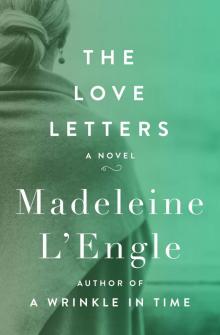 Love Letters
Love Letters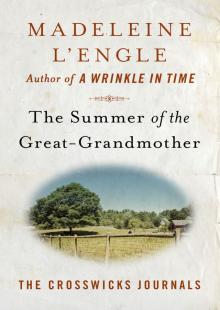 The Summer of the Great-Grandmother
The Summer of the Great-Grandmother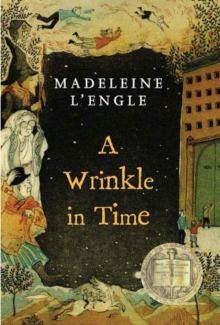 A Wrinkle in Time
A Wrinkle in Time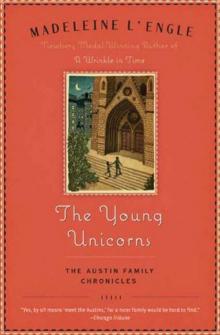 The Young Unicorns
The Young Unicorns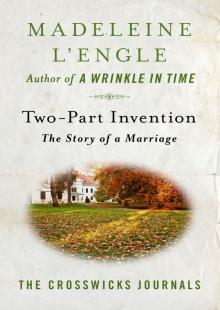 Two-Part Invention: The Story of a Marriage
Two-Part Invention: The Story of a Marriage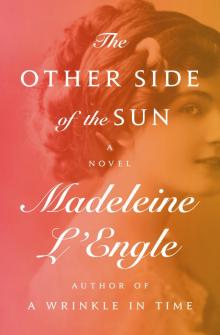 The Other Side of the Sun
The Other Side of the Sun A House Like a Lotus
A House Like a Lotus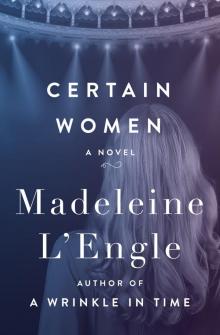 Certain Women
Certain Women Many Waters
Many Waters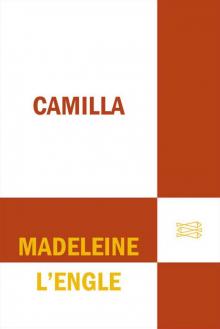 Camilla
Camilla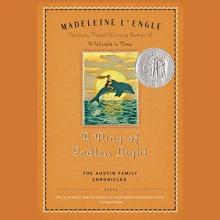 A Ring of Endless Light
A Ring of Endless Light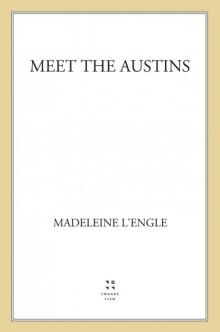 Meet the Austins
Meet the Austins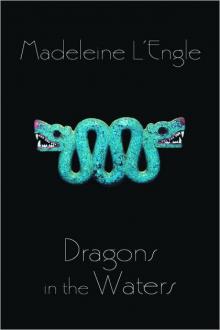 Dragons in the Waters
Dragons in the Waters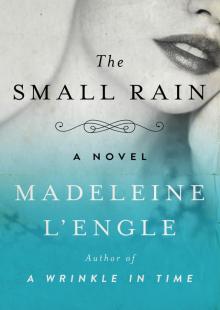 The Small Rain
The Small Rain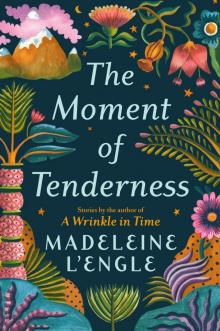 The Moment of Tenderness
The Moment of Tenderness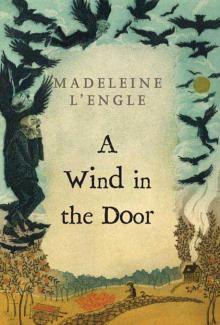 A Wind in the Door
A Wind in the Door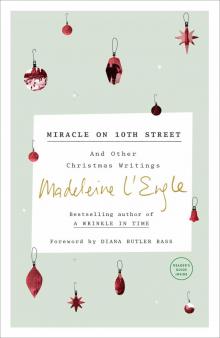 Miracle on 10th Street
Miracle on 10th Street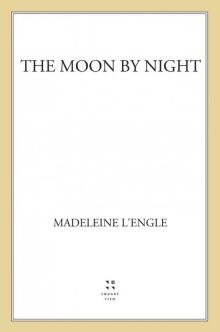 The Moon by Night
The Moon by Night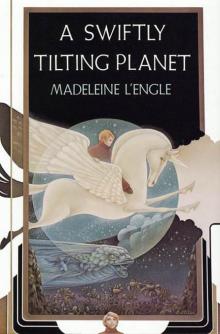 A Swiftly Tilting Planet
A Swiftly Tilting Planet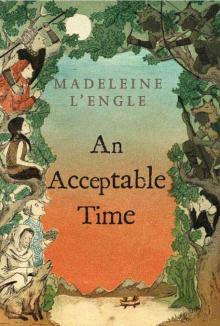 An Acceptable Time
An Acceptable Time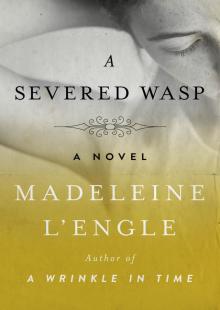 A Severed Wasp
A Severed Wasp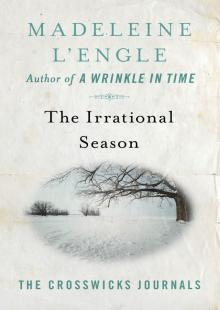 The Irrational Season
The Irrational Season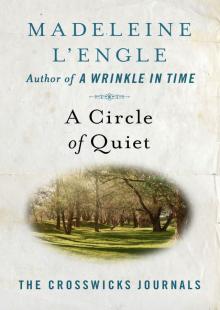 A Circle of Quiet
A Circle of Quiet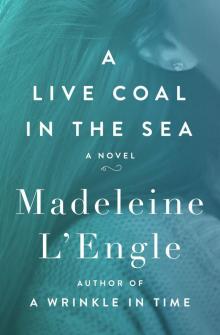 A Live Coal in the Sea
A Live Coal in the Sea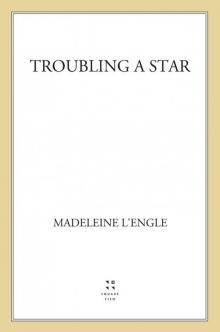 Troubling a Star
Troubling a Star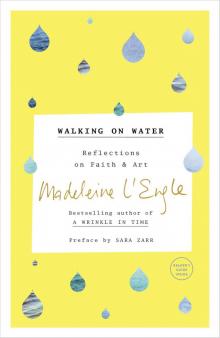 Walking on Water: Reflections on Faith and Art
Walking on Water: Reflections on Faith and Art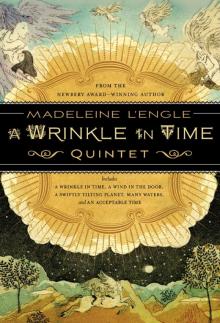 A Wrinkle in Time Quintet
A Wrinkle in Time Quintet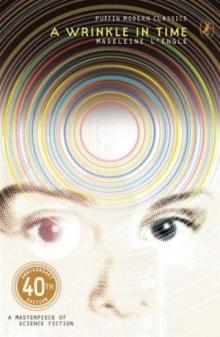 Wrinkle in Time
Wrinkle in Time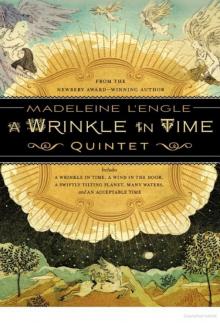 The Wrinkle in Time Quintet
The Wrinkle in Time Quintet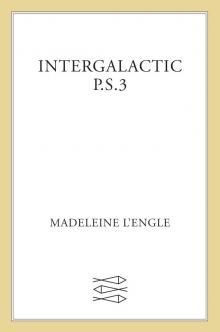 Intergalactic P.S. 3
Intergalactic P.S. 3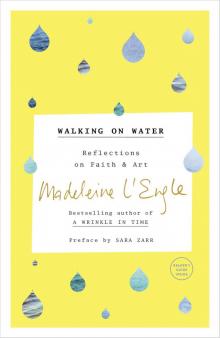 Walking on Water
Walking on Water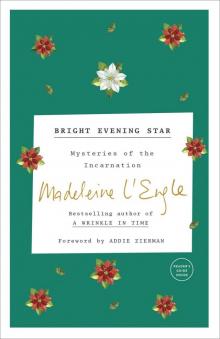 Bright Evening Star
Bright Evening Star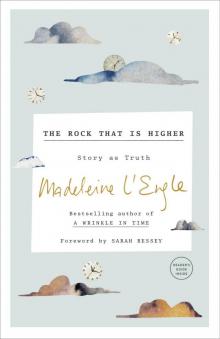 The Rock That Is Higher
The Rock That Is Higher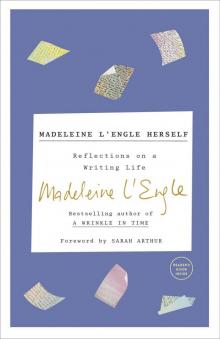 Madeleine L'Engle Herself
Madeleine L'Engle Herself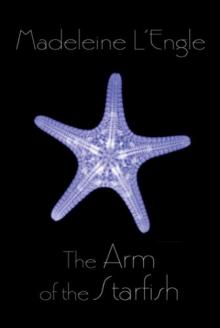 The Arm of the Starfish
The Arm of the Starfish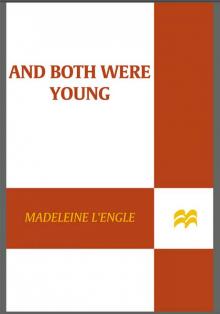 And Both Were Young
And Both Were Young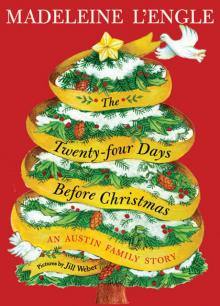 The Twenty-four Days Before Christmas
The Twenty-four Days Before Christmas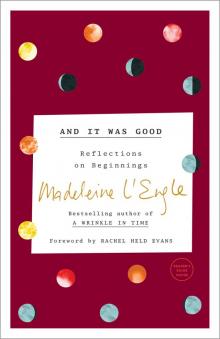 And It Was Good
And It Was Good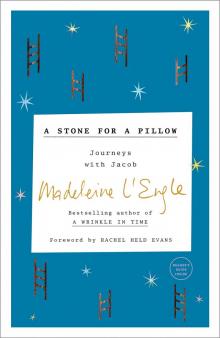 A Stone for a Pillow
A Stone for a Pillow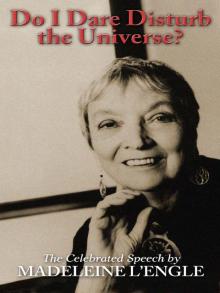 Do I Dare Disturb the Universe?
Do I Dare Disturb the Universe?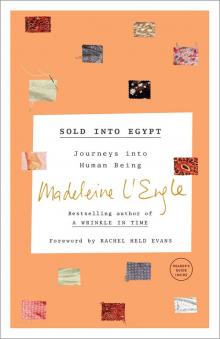 Sold into Egypt
Sold into Egypt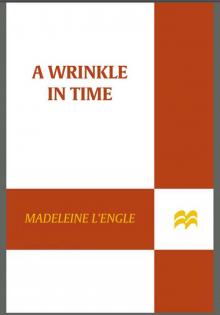 A Wrinkle in Time (Madeleine L'Engle's Time Quintet)
A Wrinkle in Time (Madeleine L'Engle's Time Quintet)